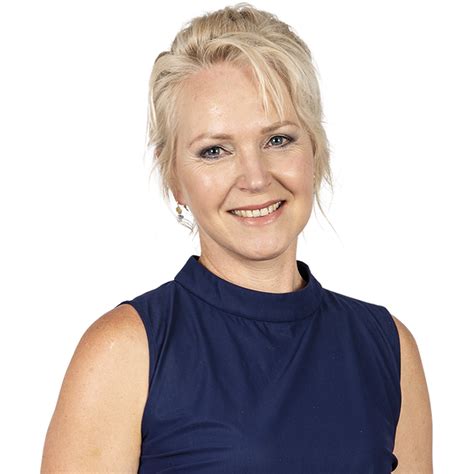A Quote by Stella Chess
Even today . . . experts, usually male, tell women how to be mothers and warn them that they should not have children if they have any intention of leaving their side in their early years. . . . Children don't need parents' full-time attendance or attention at any stage of their development. Many people will help take care of their needs, depending on who their parents are and how they chose to fulfill their roles.
Related Quotes
Despite the long-term reduction in familial roles and functions, we believe that parents are still the world's greatest experts about the needs of their own children. Virtually any private or public program that supports parents, effectively supports children. This principle of supporting family vitality seems to us preferable to any policy that would have the state provide children directly with what it thinks they need.
Ideas about mothers have swung historically with the roles of women. When women were needed to work the fields or shops, experts claimed that children didn't need them much. Mothers, who might be too soft and sentimental, could even be bad for children's character development. But when men left home during the Industrial Revolution to work elsewhere, women were "needed" at home. The cult of domesticity and motherhood became a virtue that kept women in their place.
One can tell a child everything, anything. I have often been struck by the fact that parents know their children so little. They should not conceal so much from them. How well even little children understand that their parents conceal things from them, because they consider them too young to understand! Children are capable of giving advice in the most important matters.
In vain are Schools, Academies, and Universities instituted, if loose Principles and licentious habits are impressed upon Children in their earliest years . . . . The Vices and Examples of the Parents cannot be concealed from the Children. How is it possible that Children can have any just Sense of the sacred Obligations of Morality or Religion if, from their earliest Infancy, they learn their Mothers live in habitual Infidelity to their fathers, and their fathers in as constant Infidelity to their Mothers.
If in the earlier part of the century, middle-class children suffered from overattentive mothers, from being "mother's only accomplishment," today's children may suffer from an underestimation of their needs. Our idea of what a child needs in each case reflects what parents need. The child's needs are thus a cultural football in an economic and marital game.
At each stage of development the child needs different resources from the family. During the first year, a variety of experience and the availability of the parents for attachment are primary. During the second and third years, stimulation of language development is critical. During the years prior to school entrance, information that persuades children they are loved becomes critical, and during the school years it is important for children to believe that they can succeed at the tasks they want to master.
Love involves more than just feelings. It is also a way of behaving. When Sandy said, "My parents don't know how to love me," she was saying that they don't know how to behave in loving ways. If you were to ask Sandy's parents, or almost any other toxic parents, if they love their children, most of them would answer emphatically that they do. Yet, sadly, most of their children have always felt unloved. What toxic parents call "love" rarely translates into nourishing, comforting behavior.
I think the first thing parents need to start doing is absolutely refuse to cooperate with any psychological evaluation of children in school. Schools should not be mental hospitals. Parents should say that the only tests they want their children to have are those respecting their academic subjects and nothing else.
There are all these new books out there portraying Asian mothers as scheming, callous, overdriven people indifferent to their kids' true interests. For their part, many Chinese secretly believe that they care more about their children and are willing to sacrifice much more for them than Westerners, who seem perfectly content to let their children turn out badly. I think it's a misunderstanding on both sides. All decent parents want to do what's best for their children. The Chinese just have a totally different idea of how to do that.
Parents who are stressed or disturbed will have more difficulty in meeting their children's needs. Parents who have little support--from friends, relatives, neighbors, or the community--are more likely to be overburdened by the demands of their babies and to be unable to respond to them adequately. Parents who experience severe poverty or economic insecurity, who cannot satisfy their own basic needs, are likely to have difficulty in responding to their children's needs.
Recognizing that family self-sufficiency is a false myth, we also need to acknowledge that all today's families need help in raising children. The problem is not so much to reeducate parents but to make available the help they need and to give them enough power so that they can be effective advocates with and coordinators of the other forces that are bringing up their children.


































